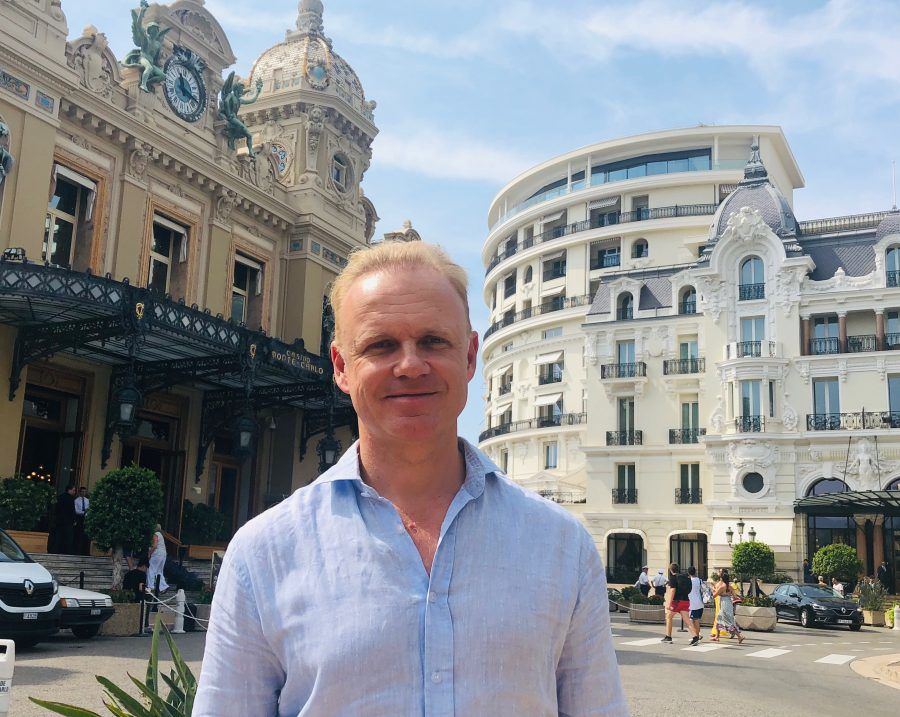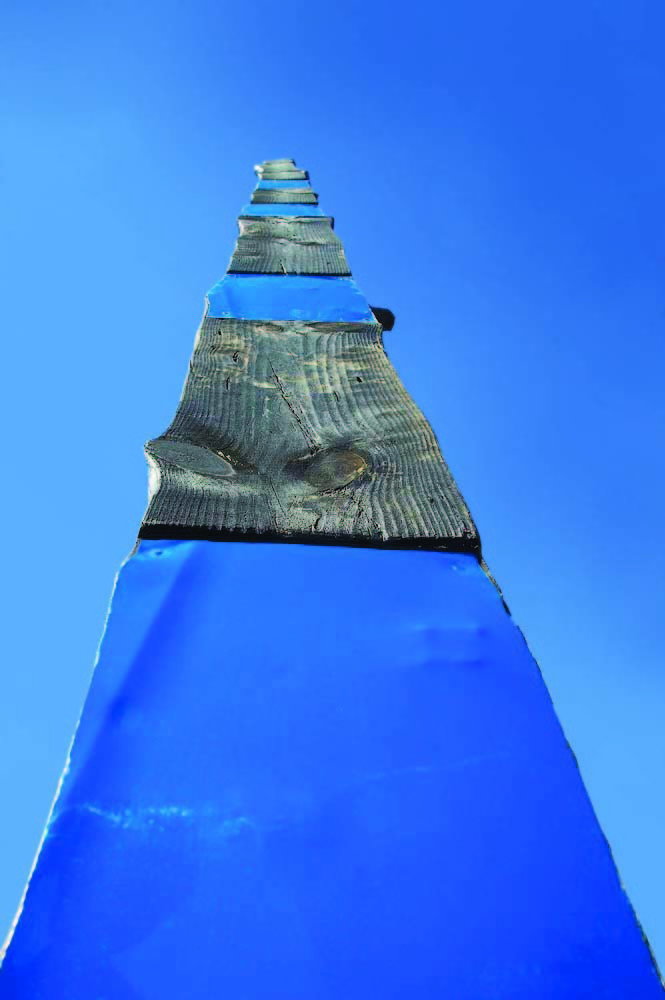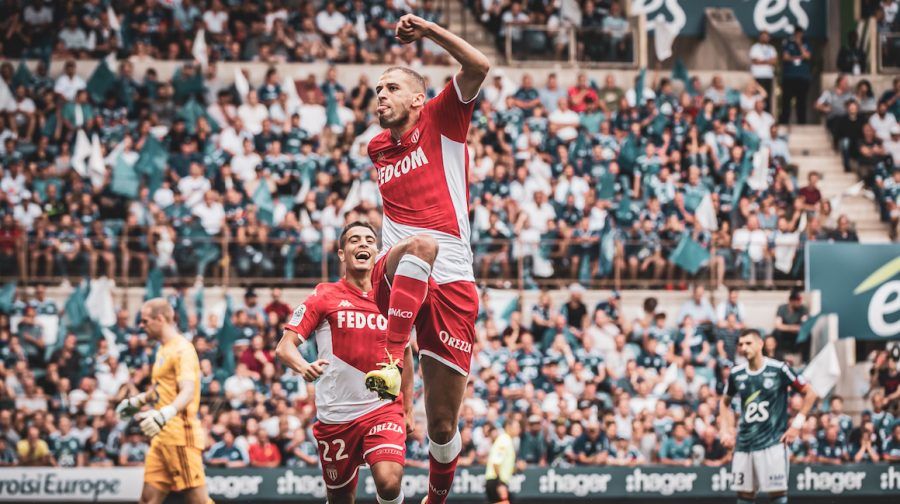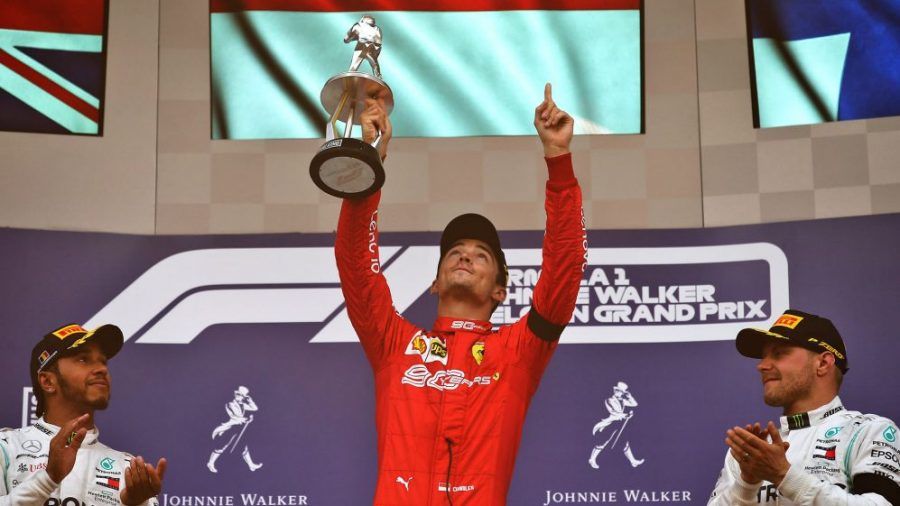Ian Sosso is changing the world, one investment at a time. His pioneering vision to help entrepreneurs overcome the “Valley of death” is inspiring, and his methods are rattling the investment world.
Ian is a Monegasque but has spent much of his life abroad, working in the biggest banks like HSBC, UBS and JP Morgan, in the world’s largest cities of London, Tokyo, Singapore and Hong Kong. He also headed the investment bank division of Commerzbank for the Asia Pacific region.
Monaco Life: You have an incredible career history, Ian, so where did the idea of creating Monte Carlo Capital begin?
Ian: It started 10 years ago when I decided to leave banking and set up a firm, but purely to invest my own savings. Although I ran banking businesses in liquid asset classes, I tended to invest my own money in private deal in the illiquid space because I think if you can source your own deals, structure them, run them and influence them all the way to the exit, then as an investor you will be generating substantially higher returns than investing in the liquid markets. That’s always been my experience.
So my plan initially wasn’t to start a business, but within five years I realised that there was a massive opportunity in the early investment space, and that my approach was working.
Can you summarise the problems surrounding the early investment space?
We all know great wealth is generated by entrepreneurs. If you can identify those great businesses early on, you can, as a private investor, be second in line behind the entrepreneur. But investing in starts ups is very risky. So you need a process.
The first line of investors, after the entrepreneurs, are their friends and family. Then, you have business angels, and venture funds come next. Typically, the average ticket size for an angel in Europe is about 25,000€. Angel investors often come together via an investment club called an angel network, of which there are more than 500 throughout Europe and thousands around the world. The average ticket size of a group of angels investing through a network in a company was around 183,000€ last year in Europe.
So Let’s say a great business that will change the world needs a million euros. The business has two main options: one, to go to the angel investors, but on average in Europe the entrepreneur needs to convince 40 business angels (25,000€ per angel) and that’s hard work. It can also go to venture capital, but they generally won’t invest less than a few millions.
So that gap between half a million, and say two million, is what we call the “valley of death” and it is a topic I talk about regularly at conferences throughout the world. It’s where most start-ups fail.
This is where we come into it. In summary, we start investing in the valley of death, where investments are too big for angel investors and too small for venture capital funds, and we can find great businesses struggling to get financing.
What does the rest of the investment world think of this?
There is some backlash around venture capital funds: they are not always completely in line with entrepreneurs and adding the value that they claim. At the same time, they have money to invest so start ups have little choice. Our philosophy is we have the size of a venture fund but remain a group of private investors and family offices. Essentially, I lead every investment, and a group of private investors and family offices co-invest with me on an ad-hoc basis. The idea is that we essentially bring the best of what venture capital and business angels bring to the table. So we can lead the first financing, but we also regularly lead the second, the third, and the fourth financing as well, where typically the venture would come in.
I also have advisors in the US, Europe, and Asia, so as soon as we invest we help the business grow globally, and that’s typically only something a large venture capital fund can do.
So we bring investment and help, we can also bring a board member or chairman for example; and we can open doors by bringing in clients. The idea is that we help the businesses grow globally and our vision is to keep financing them without relying on venture capital funds.
Entrepreneurs love our approach: we can finance their business and help them grow, whilst remaining a group of private investors.
This concept seems very unique, is there anyone else doing this in Europe?
Our set up is quite unique I think. And this is a big topic and a global problem. I am on the board of EBAN, the Brussels based European business angels association representing 30,000 angels in 50 countries. I am in fact speaking at a major European Commission conference in Helsinki in September on the transfer of technology between universities and businesses and the involvement of business angels as early stage investors.
What type of businesses do you invest in?
There are two types of businesses we are looking for. Firstly, it is deep technology, the businesses solving big problems better than anyone else in the world, and typically backed by one of the best scientists in the world. Within that space you have medical devices, artificial intelligence, big data, and robotics. We have to be able to build a business that is substantial so we are talking about reaching a few hundred million euros valuations within at least five years. That is about 80% of what we are doing.
The remaining 20% of our businesses are very disruptive, so those that are in a competitive space but smarter, better, or cheaper than anyone else.
An issue which is particularly close to my heart is that there is a massive bottle neck in the transfer of technologies from universities. In the US alone you have about 70 billion dollars that is going to universities and research centres every year typically funded by governments. That’s billions in funding for the best research labs in the world, with the best scientists, but we are struggling to take this research and translate that into commercial applications.
Why is that?
It is a very big topic but it is a problem that is global for a number of different reasons. One is that the researchers are not always aware of how to transfer technologies or what the incentives are. There is a department at universities called the Technology Transfers Office which is responsible for making that bridge, and the old universities do it very well: Stanford, MIT, Harvard, but most universities are still new at this and are having trouble bridging the gap between research and commercialisation. Deep technology is typically an area that the angels worry about because it is high tech businesses that requires great understanding of the technologies and each require a great amount of funding, as opposed to a software business for example which many angels tend to prefer.
Now, most of the world has been dealing with the issue of technology transfer by creating an eco-system around the inventors. The general solution is to take scientists and make them entrepreneurs. And that is very challenging for everyone, because I would argue that the more PHDs you have the less suited you are to be an entrepreneur. The reality is that they are very different skills that are required.
It’s one thing being a great scientist; it’s another thing to have commercial success.
So, I have also partnered with as a group in the US. We licence intellectual property directly from universities and then we build the businesses ourselves. We have scientists doing due diligence, full time lawyers, and entrepreneurs in residence… more than 20 people who are looking to take the risk, to a degree, out of the entire start up process because of very strong due diligence on the tech and a strong team able to build tech businesses . We have launched quite a few businesses like this and we are looking to build another 10 to 15 businesses in the next few years based on the same principle, with six in the pipeline for the next nine months only.
My talk in Helsinki will focus around what we do in the US. This seems of great interest to the European Commission as this is also a big topic in Europe.
Tell us about the Angel Award that you recently won?
I mentioned EBAN earlier on. I joined the organisation three years ago and within the first year I won ‘Best Performing New Member in Europe’ award, which was nice. A year later I joined the board and in June I won the award for the ‘Best European Early Stage Investor’.
I am very involved in the eco system of the angels.
And you are obviously very passionate about this area…
It is fascinating, I see more than a thousand business plans every year from all over the world and I have spent the past five years building a brand. I spend a lot of my time talking at conferences on this topic, I have been a keynote speaker on four continents in the past 12 months only. I also lecture venture capital to MBA and finance MSc students at the International University of Monaco.
How do you find the time?
I have never worked so hard in my life to be honest. From the conferences all the way to doing a due diligence on the businesses, structuring the deal, and helping great businesses grow. The lectures and conferences are more about giving back and contributing to students, the entrepreneurial world and the angel community.
Photo of Ian Sosso by Monaco Life







